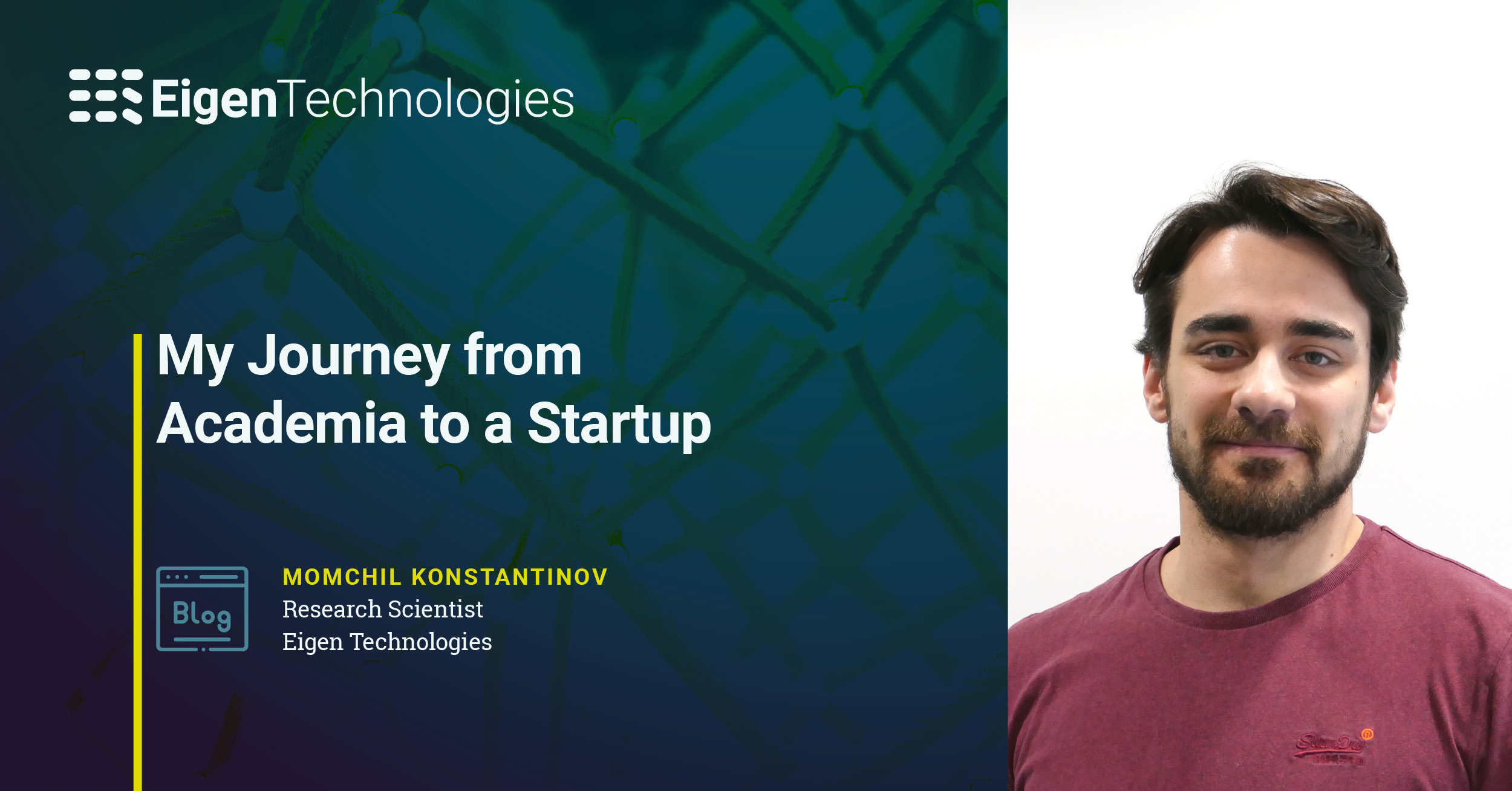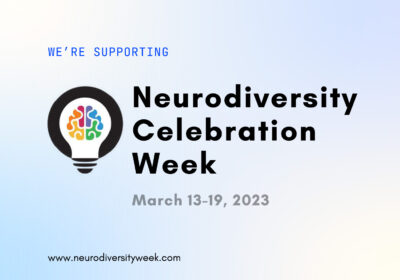Our research scientist Dr Momchil Konstantinov explains his journey at Eigen from Academia to a Startup
Exactly one year ago I submitted my PhD thesis. I was happy with the work I had done, and I was grateful for having had the opportunity to spend so much time in the search of mathematical truth and beauty.
But I also knew that pursuing an academic career would involve frequent relocations and a never-ending job hunt, which really didn’t fit my life plan. And while I was in awe of the ideas at the cutting edge of pure mathematical research, I also wanted to build more practical things, things that work at the push of a button.
And so, I was facing a challenge: where would I find a non-academic job where I could apply the skills I had developed, and where I could also continue to learn new and interesting mathematics?
I’m not the first one to have asked myself this question. And like others, I looked to the field of machine learning for answers.
It was a bit overwhelming to start learning the concepts and practice of ML, but there are some great resources out there, from exhaustive technical textbooks to hands-on online courses and tutorials. If you have a solid mathematical background and don’t shy away from calculations, even cutting-edge research papers are well within reach.
Thus, as I was finishing my PhD, I started re-learning some statistics, teaching myself some Python, reading the odd ML paper and speaking to people who had been down the same road before me. (Getting in touch with such people was incredibly useful and I wish I had started much earlier.) I quickly became fascinated with the field, and I even saw some of my favorite branches of mathematics (like algebraic topology and differential geometry) find applications in machine learning algorithms!
I knew I still had a lot to learn, but I wanted to explore practical problems and start contributing to solutions as quickly as possible. And what better way to do that than by joining a young ML company where my own development could easily go hand in hand with the firm’s progress?
Why Eigen?
It was the science team at Eigen that really made an impression on me. They not only had the passion and drive for what they did, but they approached their work with a high degree of rigor. I could see that the emphasis at Eigen was on building an ML system with robust foundations, based on sound mathematical and statistical principles.
I was also impressed by the focus that was put on learning and team development. The field of machine learning is moving quickly, and it can be hard for one person to keep up with new ideas on their own. Hearing about the knowledge-sharing sessions, the reading groups, and the research days organized by the science team made me realize that Eigen was serious about long-term development. I knew then that this was the place for me to learn and grow as a researcher.
First impressions
My first four months at Eigen went by fast.
The scientific work is exactly what I had hoped for: reading papers, comparing notes, testing out ideas and uncovering the approaches that work best for the problems we are solving. Having come straight from academia, this workflow made me feel right at home.
That's not to say that there weren't challenges.
First and foremost, I had to quickly improve my engineering skills. It’s one thing to code and prototype models at home but contributing to a large codebase which needs to be robust and scalable requires a lot more coding knowledge. I’m slowly but surely coming up to speed, learning from more experienced scientists and engineers who know their trade and are always happy to help.
As this is my first job outside of academia, I’m also learning how to fit within a company and its office environment. And in this case, a young company: one where things change quickly, and priorities and processes often shift. This can be frustrating sometimes, but it is also a welcome challenge—after all, leaving pure research is also about being exposed to the messiness of the outside world and learning to be more adaptive.
Looking ahead
With the recent closing of our series B funding, things at Eigen are moving very fast. The infrastructure that the engineering teams are building will soon allow us to greatly speed up our production cycle from prototyping to deployment.
For me and the rest of the science team, this means we'll be able to build more complex models, further automate our processes for model evaluation and selection, and test ideas much more quickly. To take full advantage of these capabilities, we’ll be welcoming more people with a passion for mathematics, machine learning, and coding to the team. I know there will be a lot to do, but just thinking about all that we will learn and build together makes me excited for the year ahead.

-
World Economic forum 2020
-
Gartner Cool Vendor 2020
-
AI 100 2021
-
Lazard T100
-
FT Intelligent Business 2019
-
FT Intelligent Business 2020
-
CogX Awards 2019
-
CogX Awards 2021
-
Ai BreakThrough Award 2022
-
CogX Awards Best AI Product in Insurance
-
FStech 2023 awards shortlisted
-
ISO27001
-
ISO22301
-
ISO27701
-
ISO27017
-
ISO27018


















